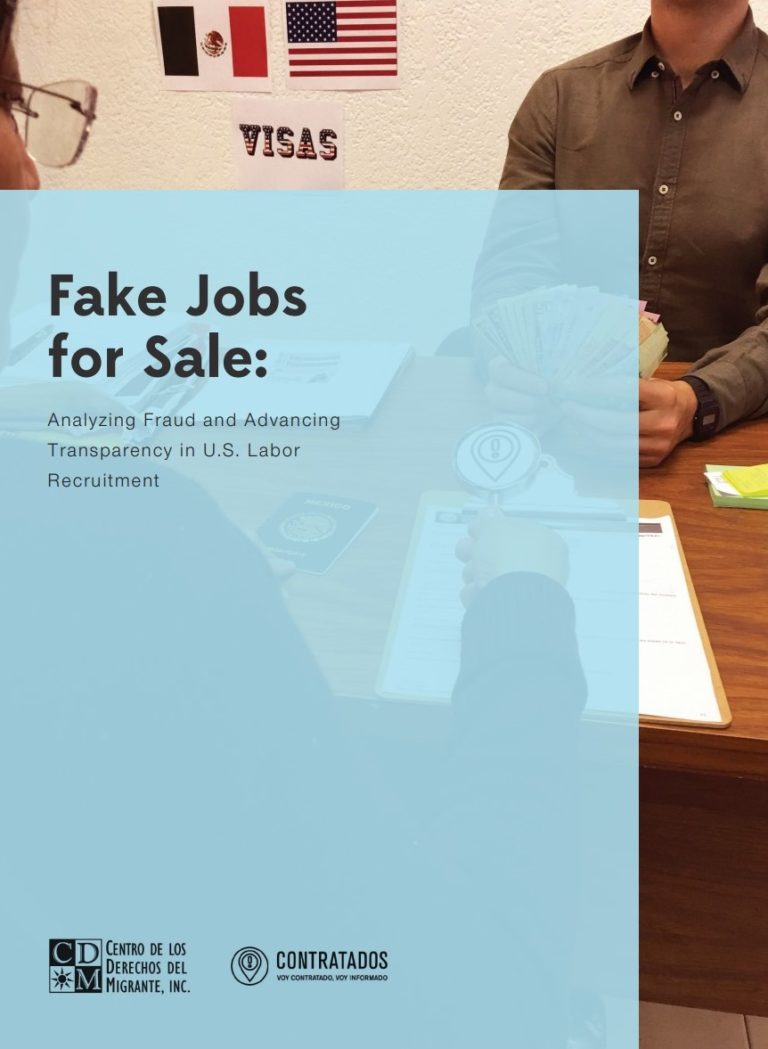For years, Centro de los Derechos del Migrante, Inc. (CDM) has documented fraudulent recruitment schemes that funnel hundreds of thousands of U.S. dollars per year into the pockets of fraudulent recruiters. This type of fraud is widespread, harming families and entire communities across all of Mexico. Victims of fraud, together with their families and communities, fall into poverty and debt without ever obtaining work in the United States. While fraud and recruitment fees are illegal in both the United States and Mexico, these practices are proliferating today at alarming rates and with increasing complexity. Within a context of high demand for migrant workers and little transparency, fraudulent recruiters operate with impunity in an informal, under-regulated labour recruitment network. For all too many workers, risking fraud becomes an inevitable step in their search for gainful employment in the United States.
In response, CDM has partnered with migrant worker leaders and human rights advocates to improve transparency and accountability within the recruitment process by spreading information, increasing public awareness, and encouraging community organizing. This report analyzes the information about recruitment fraud that CDM has collected in its thirteen years working in Mexico. It concludes with recommendations on how to improve the recruitment system as well as steps prospective migrant workers seeking employment in the United States can take to protect themselves from fraud. Although organizations like CDM have had success in helping migrants prevent recruitment fraud, fraudulent recruiters will continue to arise and operate with impunity until the responsible government agencies on both sides of the border take steps to regulate the international labour recruitment industry with greater transparency, oversight, and accountability mechanisms.

